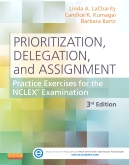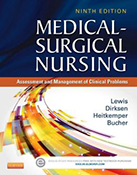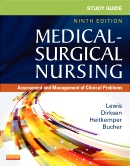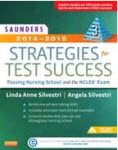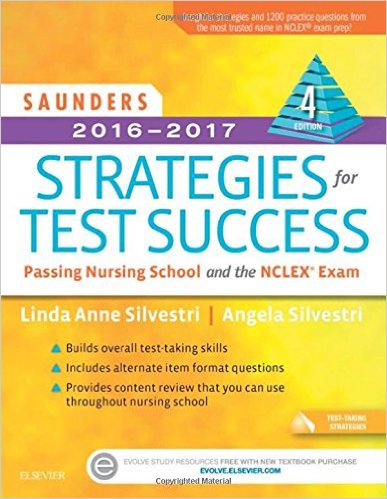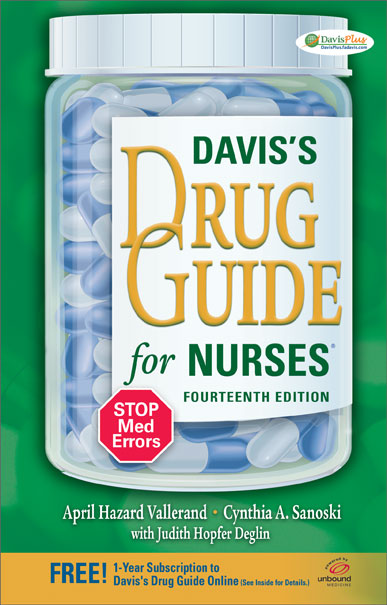| Course Number: | NR324 |
|---|---|
| Course Title: | Adult Health I |
| Credit Hours: | 5 |
| Theory Hours: | 3 |
| Laboratory Hours: | 0 |
| Clinical Hours: | 2 |
| Place in Curriculum | Year 2 Semester 2 |
| Prerequisite: | BIOS251, BIOS252, BIOS255, BIOS256, MATH114, NR226, NR282 or NR283, NR304 Military to BNS degree option: BIOS251, BIOS252, BIOS255, BIOS256, MATH114, NR295, NR299 |
| Corequisite: | NR291 or NR293, PSYC290 |
Syllabus
Overview
Course Description
The focus of this course is on the needs of adult patients and their families in relation to health promotion and management of conditions that require acute and chronic care. The nursing process is used in the discussion of health alterations affecting selected life processes. Students continue their professional skill development as members of the health team. A variety of populations and settings are used in the experiential learning component of this course.
Textbooks and Resources
Required Textbooks
The following books are required for this course:
LaCharity, L., Kumagai, C., & Bartz, B. (2013). Prioritization, delegation, and assignment (3rd ed.). St. Louis, MO: Elsevier.
Lewis, S. L., Dirksen, S. R., Heitkemper, M. M., & Bucher, L. (2014). Medical surgical nursing: Assessment and management of clinical problems (9th ed.). St. Louis, MO: Mosby.
Lewis, S. L., Dirksen, S. R., & Bucher, L. (2014). Study guide for Medical surgical nursing: Assessment and management of clinical problems (9th ed.). St. Louis, MO: Mosby.
Silvestri., A, & Silvestri., L. (2014). Strategies for test success (3rd ed). St Louis, MO: Saunders Elsevier.
Silvestri., A, & Silvestri., L. (2016). Strategies for test success (4th ed). St Louis, MO: Saunders Elsevier.
Vallerand, A. H. & Sanoski, C. A. (with Deglin, J. H.). (2014). Davis's drug guide for nurses. (14th ed.). Philadelphia, PA: F.A. Davis.

American Psychological Association. (2010). Publication manual of the American Psychological Association (6th ed.). Washington, DC: Author.
Optional Textbooks
The following books are required for this course:
Physical Books and Supplies
To obtain all your books and supplies, visit the online Chamberlain bookstore at https://bookstore.chamberlain.edu/.
eBook Details
First Time Using VitalSource?
Step 1: View the VitalSource Video
Step 2: Register with VitalSource Bookshelf Online
- Click the cover or title of your eBook. A new window will open.
- Enter email address and password. Bookshelf Online will open.
Step 3: Access the Desktop and Mobile Versions
You must complete Step 2 prior to using the desktop or mobile versions.
Already Registered? 3 Ways to Access Your eBooks

Online
Access your eBook by clicking on the book cover or title in the syllabus page. Bookshelf Online will open.

Desktop
Download your eBooks and use them whether you're connected to the Internet or not.

Mobile
Download the app and get your eBooks on your iPhone, iPad, or Android device.
Program Outcomes
The outcomes for the Bachelor of Science in Nursing (BSN) degree program are as follows:
1
Provides individualized comprehensive care based on theories and principles of nursing and related disciplines to individuals, families, aggregates and communities, from entry to the healthcare system through long-term planning.
2
Demonstrates leadership and collaboration with consumers and other healthcare providers in providing care and/or delegating responsibilities for health promotion, illness prevention, health restoration, health maintenance and rehabilitative activities.
3
Communicates effectively with patient populations and other healthcare providers in managing the healthcare of individuals, families, aggregates and communities.
4
Integrates clinical judgment in professional decision making and implementation of the nursing process.
5
Demonstrates responsibility for continued personal and professional development through enrollment in graduate education, continuing education degree programs, professional reading and participation in professional organizations and community service.
6
Implements professional nursing standards by practicing within the legal definitions of nursing practice and acts in accordance with the nursing code of ethics and American Nurses Association (ANA) standards of practice.
7
Practices in established professional roles consistent with entry-level BSN graduates to provide cost-effective, quality healthcare to consumers in structured and unstructured settings.
8
Incorporates evidence-based practice in the provision of professional nursing care to individuals, families, aggregates and communities.
Course Outcomes
Chamberlain College of Nursing courses are built to align course content with specific Course Outcomes (COs). The COs define the learning objectives that the student will be required to comprehend and demonstrate by course completion. Unit outcomes provide further detail to support learner achievement of specific COs and are listed within each unit under the introduction. Whenever possible, a reference will be made from a particular assignment or discussion back to the CO that it emphasizes.
Upon completion of this course, the student will be able to do the following.
1
Provide effective professional nursing care for adult patients and their families in acute care settings using the nursing process. (PO 1)
2
Participate in health maintenance and health restoration activities as members of the healthcare team. (PO 2)
3
Demonstrate effective communication skills necessary for collaboration with other health team members and for providing professional nursing care to adult patients and their families. (PO 3)
4
Apply critical thinking strategies to make good clinical decisions in the adult patient clinical setting. (PO 4)
5
Assume responsibility and accountability for identifying own personal, educational, and professional goals. (PO 5)
6
Relate knowledge and principles of legal, ethical, and professional standards to clinical practice in the acute care setting, with adult patients and their families. (PO 6)
7
Exhibit behaviors consistent with professional nursing roles and responsibilities while providing cost-effective nursing care to individuals and families. (PO 7)
8
Utilize nursing research literature while providing care to adult patients and their families in the acute care settings. (PO 8)
Key Concepts
1
Fluid and Electrolyte Imbalance
2
Acid-Base Imbalance
3
Respiratory System Alterations
4
Cardiovascular System Alterations
5
Hematologic System Alterations
6
Gastrointestinal System Alterations
7
Immune System Alterations
8
Musculoskeletal System Alterations
Learning Plan
Download and review the NR324/NR329 Adult Health I Learning Plan. This learning plan provides a list of unit outcomes and detailed key topics covered in the course.
Required Uniform Assignments (RUAs)
Required Uniform Assignments (RUAs) are essential elements of assessment that are consistent across the curriculum at Chamberlain College of Nursing. These assessments help measure and track students' progress in meeting the BSN Program Outcomes. Each RUA is course-specific and required in both online and campus courses. Download the Case Study Presentation guidelines and grading rubric to begin planning for the successful completion of this assignment.
If you have any questions about the assignment please speak to your instructor.
Course Schedule
| Unit, COs, and Topics | Readings | Assignments |
|---|---|---|
| Unit 1 COs 1, 2, 3, 4, 5, 6, 7, and 8 Nursing Care of a Patient | LaCharity, L., Kumagai, C., & Bartz, B. (2013). Prioritization, delegation, and assignment (3rd ed.). St. Louis, MO: Elsevier.
Lewis, S. L., Dirksen, S. R., Heitkemper, M. M., & Bucher, L. (2014). Medical surgical nursing: Assessment and management of clinical problems (9th ed.). St. Louis, MO: Mosby.
| Evolve Online NCLEX-style review questions Study guide pages Medication Calculation Exam |
| Unit 2 COs 1, 2, 3, 4, 6, 7, and 8 Nursing Care of the Patient With Respiratory System Alterations | LaCharity, L., Kumagai, C., & Bartz, B. (2013). Prioritization, delegation, and assignment (3rd ed.). St. Louis, MO: Elsevier.
Lewis, S. L., Dirksen, S. R., Heitkemper, M. M., & Bucher, L. (2014). Medical surgical nursing: Assessment and management of clinical problems (9th ed.). St. Louis, MO: Mosby.
| Evolve Online NCLEX-style review questions Study guide pages Standardized Clinical Experience |
| Exam #1 (Units 1 & 2) | ||
| Unit 3 COs 1, 2, 3, 4, 6, 7, and 8 Nursing Care of the Patient With Cardiovascular System Alterations | LaCharity, L., Kumagai, C., & Bartz, B. (2013). Prioritization, delegation, and assignment (3rd ed.). St. Louis, MO: Elsevier.
Lewis, S. L., Dirksen, S. R., Heitkemper, M. M., & Bucher, L. (2014). Medical surgical nursing: Assessment and management of clinical problems (9th ed.). St. Louis, MO: Mosby.
| Exam 1 Evolve Online NCLEX-style review questions Study guide pages HESI RN Case Studies Standardized Clinical Experience |
| Unit 4 COs 1, 2, 3, 4, 6, 7, and 8 Nursing Care of a Patient With Hematologic System Alterations | LaCharity, L., Kumagai, C., & Bartz, B. (2013). Prioritization, delegation, and assignment (3rd ed.). St. Louis, MO: Elsevier.
Lewis, S. L., Dirksen, S. R., Heitkemper, M. M., & Bucher, L. (2014). Medical surgical nursing: Assessment and management of clinical problems (9th ed.). St. Louis, MO: Mosby.
| Evolve Online NCLEX-style review questions Study guide pages HESI RN Case Studies Standardized Clinical Experience |
| Exam #2 (Units 3 & 4) | ||
| Unit 5 COs 1, 2, 3, 4, 6, 7, and 8 Nursing Care of a Patient With Gastrointestinal System Alterations | LaCharity, L., Kumagai, C., & Bartz, B. (2013). Prioritization, delegation, and assignment (3rd ed.). St. Louis, MO: Elsevier.
Lewis, S. L., Dirksen, S. R., Heitkemper, M. M., & Bucher, L. (2014). Medical surgical nursing: Assessment and management of clinical problems (9th ed.). St. Louis, MO: Mosby.
| Exam 2 Evolve Online NCLEX-style review questions Study guide pages RN HESI Case Studies Standardized Clinical Experience |
| Unit 6 COs 1, 2, 3, 4, 6, 7, and 8 Nursing Care of a Patient With Immune System Alterations | LaCharity, L., Kumagai, C., & Bartz, B. (2013). Prioritization, delegation, and assignment (3rd ed.). St. Louis, MO: Elsevier.
Lewis, S. L., Dirksen, S. R., Heitkemper, M. M., & Bucher, L. (2014). Medical surgical nursing: Assessment and management of clinical problems (9th ed.). St. Louis, MO: Mosby.
| Evolve Online NCLEX-style review questions Study guide pages Standardized Clinical Experience |
| Exam #3 (Units 5 & 6) | ||
| Unit 7 COs 1, 2, 3, 4, 6, 7, and 8 Nursing Care of a Patient With Musculoskeletal System Alterations | LaCharity, L., Kumagai, C., & Bartz, B. (2013). Prioritization, delegation, and assignment (3rd ed.). St. Louis, MO: Elsevier.
Lewis, S. L., Dirksen, S. R., Heitkemper, M. M., & Bucher, L. (2014). Medical surgical nursing: Assessment and management of clinical problems (9th ed.). St. Louis, MO: Mosby.
| Exam 3 Evolve Online NCLEX-style review questions Study guide pages HESI RN Case Study Standardized Clinical Experience |
| Unit 8 All COs Wrap it Up | Standardized Final Exam Standardized Clinical Experience | |
Attendance Policy
Regular attendance and consistent participation within the classroom, lab, and clinical experiences facilitate the achievement of course outcomes set forth in the course syllabi. Students must arrive on time and stay for the duration of the class meeting, lab, and/or clinical experience. Late arrival may result in denied access to the class. Absences and/or tardiness from lecture, pre-clinical, clinical (including pre- and post-conferences), and/or lab experiences (including pre- and debriefing) may prohibit students from completing all components of the nursing course, resulting in course failure.
Attendance is tracked for all eight weeks of the session on a course-by-course basis and is recorded daily based on academic events. An academic event for onsite courses is defined by attending scheduled class meetings. An academic event for online courses is defined by submitting a class assignment, participating in threaded discussions, or completing quizzes and exams. An academic event for blended courses is defined by attendance in the onsite component or by submitting a class assignment, participating in threaded discussions or completing quizzes and exams in the online component.
Laboratory Class and Clinical Experiences
Lab time is utilized to practice and master skills to meet criteria that demonstrate completion of course outcomes. Students must complete all required lab, clinical and pre-clinical experiences in order to satisfy the clinical hours for each course. Demonstration of nursing skills and/or required competencies must be performed satisfactorily to pass the lab component of the course (see Skills Checklist for criteria).
In cases of emergency or severe illness, equivalent learning opportunities for absences may be offered, at the discretion of the faculty member and contingent upon availability of resources. Make- up experiences are not guaranteed and supporting documentation may be required. Students must notify the instructor and clinical agency in a manner specified by the instructor within the requested time frame. Students who are not in the appropriate attire and/or are not prepared for clinical practice may be dismissed from the clinical setting.
Due Dates for Assignments and Exams
Unless otherwise specified, the following applies.
- Access to the course begins on Sunday at 12:01 a.m. (MT) during preview week.
- All completed assignments are to be submitted to the Dropbox on or before Friday by 5:00 p.m. Mountain Time (MT) or as specified by your faculty.
- All quizzes and exams, if applicable in your course, are offered at specific times.
- Campus Courses: Campus faculty will share the date, time, and location with students at the beginning of each session.
- Online Courses: Online faculty will share online exam schedule with students during preview week in a course announcement. Students should refer to the posted announcement for the specific dates and times for their exam schedule.
Note: In Unit 8 the assignments will be due by Wednesday at 11:59 p.m. MT.
If you are taking this course on campus, a course calendar includes detailed information related to activities and due dates may be available for downloading from Doc Sharing. Please check with your instructor for more information.
If you are taking this course online, Please be advised that you may be required to take your tests on the campus in a proctored environment. Your campus will post the date, time and location of exams. If testing will take place online, the online faculty will share the exam schedule with students during preview week in a course announcement. Students should refer to the posted announcement for the specific dates and times for their exam schedule.
Assignment Values and Letter Grades
All course assignments and examinations must be completed in order to pass the course.
The maximum score in this class is 1,000 points. The categories, which contribute to your final grade, are weighted as follows.
| Assignment | Points | Weighting |
|---|---|---|
| Examinations* | ||
| Exam 1 | 200 | 20% |
| Exam 2 | 240 | 24% |
| Exam 3 | 240 | 24% |
| Standardized Final Exam | 100 | 10% |
| Medication Calculation Exam | 20 | 2% |
| *Must achieve an average of 76% to pass the course | ||
| Graded Activities | ||
| Case Study Presentation (RUA) | 100 | 10% |
| Faculty Assignments | 100 | 10% |
| Clinical | Satisfactory/Unsatisfactory | 0% |
Chamberlain Care Student Success Plan
| Satisfactory/Unsatisfactory | 0% |
| Total Points | 1,000 | 100% |
Chamberlain Care Student Success Plan
All students are required to complete the AA#1 proctored assessment. Students who are unable to attend the assessment on the schedule date must have extenuating circumstances validated by the campus delegate.
If the extenuating circumstances are validated, a make-up date will be arranged. Notification of the Academic Success Specialist is required to trigger the makeup assessment. No make-up assessments will be offered beyond 5 days of the scheduled assessment.
Failure to complete the AA#1 will result in a failure of the course.
| Letter Grade | Points | Percentage |
|---|---|---|
| A | 940–1,000 | 94% to 100% |
| A- | 920–939 | 92% to 93% |
| B+ | 890–919 | 89% to 91% |
| B | 860–889 | 86% to 88% |
| B- | 840–859 | 84% to 85% |
| C+ | 810–839 | 81% to 83% |
| C | 760–809 | 76% to 80% |
| F | 759 and below | 75% and below |
Teaching/Learning Methods
Examples include, but are not limited to
- assignments;
- case studies;
- discussion;
- experiential learning
- group assignments;
- lectures; and
- multimedia presentations.
